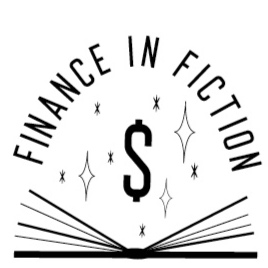Finance in Fiction & the FIRE Movement
Our worldview is saturated with curated content day in and day out. We all know that. And we all know that it affects our financial health in a big way. We use fictional content as a benchmark for what our life could be and what it should be. That’s one of the reasons I started this blog; I wanted to know what it would potentially cost me to live the beautiful lifestyles in my favorite books and films. Even nonfiction is blurring the lines between reality and storytelling nowadays (hello, Instagram influencers and photoshop aficionados!). As we’ve seen, TV magic plays a huge part in this by presenting lifestyles that do not match up to the actual cost of living.
None of these things are inherently bad until individuals take them for an unbridled truth; a truth that makes them feel inadequate to others, that discredits the work and time that they have already put in, and makes them reach further than their means. The lifestyles presented as reality to us are unsustainable and truly damaging to your self-worth and net worth.
Living beyond our means is not by any stretch a new idea, but it’s grown to epic proportions. Credit should be a choice, not a necessity, but we don’t treat it that way at all.
How can we go to work without a car? We’re financing it at a reasonable monthly rate, after all.
How can we close the gaps between bills? It’s just a few hundred dollars on a credit card for this month.
It’s cheaper to own a house and we don’t have time to save hundreds of thousands of dollars to buy that house.
I get it – there was a time when a few thousand dollars at a 30% interest rate looked better to me than no money at all. I’m not going to say don’t use credit. It’s become near impossible to develop a life on a reasonable timeline as a millennial without the use of credit. Um, student loans, looking at you.
The FIRE movement (Financial Independence, Retire Early) is the millennial version of the Dave Ramsey and Suze Orman books we grew up seeing in our parents’ hands. For many of us, that was our first foray into personal finance, myself included! But now we’re older, the rules of the game have either changed or gotten tougher.
There’s a lack of stability in our career paths that make contingency plans even more of a necessity than in past decades. We’ve insulated ourselves against that instability with degrees, long hours, two or three jobs at a time… but it’s come at a cost. A mortgage-sized cost.
The FIRE movement seeks to take the “you” out of your money equation. Essentially, your money flow can eventually exist without you clocking in day in and day out. Financial independence at its heart is freedom from responsibilities, expectations, and a standard narrative. At worst, it’s less debt and more financial literacy. At best, it’s completely work-optional living.
The truth is that you’re going to do the hard work at some point. That’s unavoidable. The question is When? Do you want to have a lot of material items and status validation throughout the years at a steady pace, funded by 40+ hours of your time for 40+ years? Do you want to live as professional penny pinchers for a few years and then do the smooth sailing after that? Perhaps you’d prefer some combination of the two. At the end of the day, you have to be comfortable with your decision.
I do encourage everyone to at least learn about the FIRE movement, however. You can only make informed decisions with knowledge of the options available to you. There’s so much knowledge available in so many different mediums today!
There are some naysayers to the movement, but every time I dig into the arguments against FIRE, I find that the authors have a fundamental misunderstandings about the movement.
We truly are the crowd-sourced generation. There are very few things more important than your finances, your health, your family, and your time. The FIRE movement addresses all of these things and more. That is why we are proud supporters of the FIRE movement, and will continue to address topics of interest to those on the path to financial independence.
What are your thoughts on the arguments against the FIRE movement?



